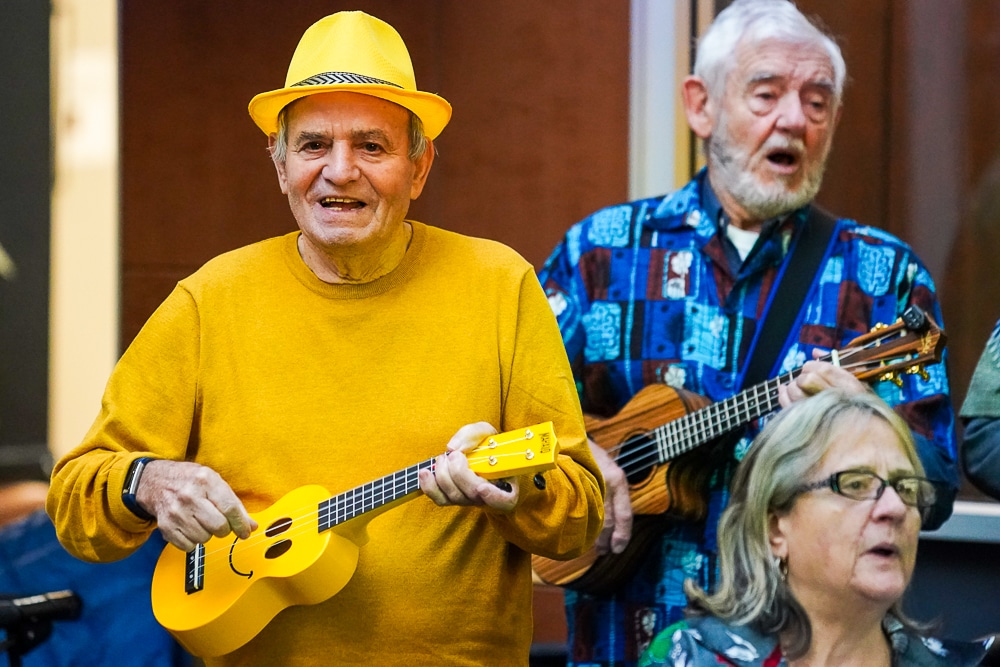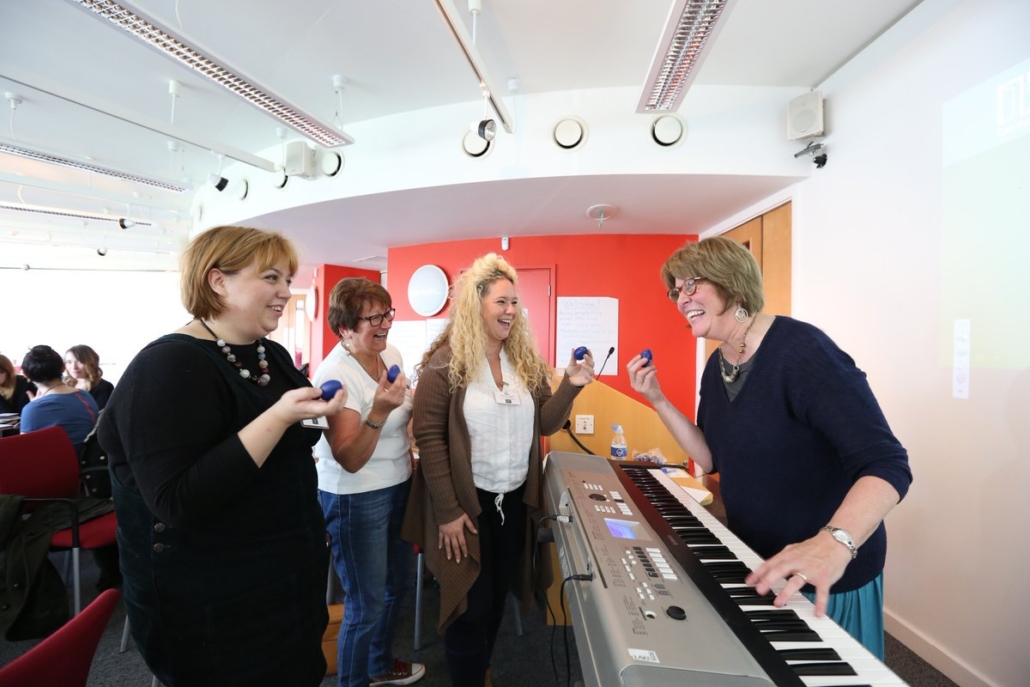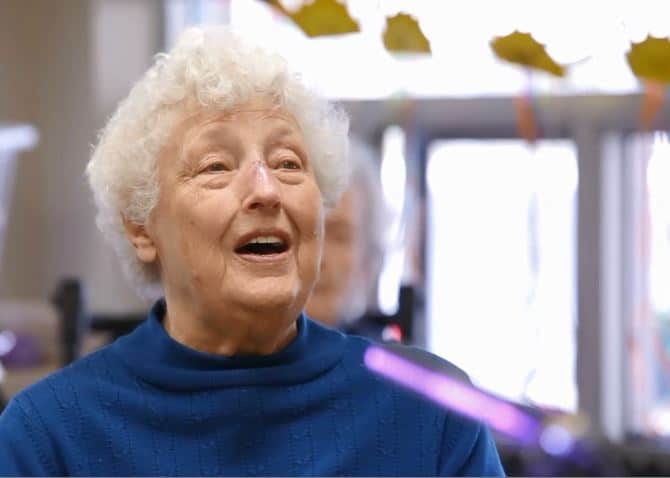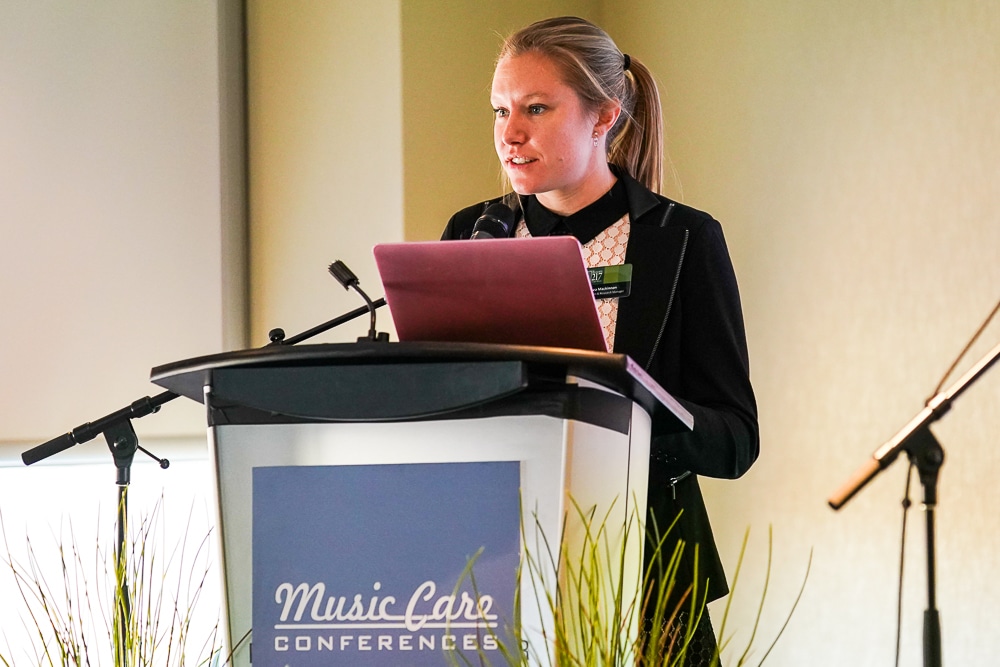“Music has the capacity to touch every human dimension and affect measurable change in every sphere of human experience.”
-Bev Foster, Founder, Room 217 Foundation

Canada is going through a profound demographic shift. According to the Government of Canada, in 2012 almost one in seven Canadians was a senior; by 2030 that number will be almost one in four.
This change presents many challenges to seniors, caregivers, researchers, and family members alike. One of these challenges is an increase in people seeking palliative care.
The Room 217 Foundation is a non-profit organization based in Port Perry, Ontario. They identified a key element missing from long term care homes and hospital rooms, but one that would greatly improve the quality of end-of-life care: music.

This 10-year-old program is changing the culture of care through specialized music and training for caregivers. Music care is defined as the intentional use of music to improve health and well-being, using sound and music as a holistic solution, focusing on the relationship between the caregiver and patient.
“We hope that music will enhance the quality of life for the person that may be dying or may be living with some sort of life-threatening illness. But we’re also hoping that we make the task of caregiving more human, more pleasant, more relational for the person that day-after-day is giving care,” said founder Bev Foster.
Palliative music has outcomes including reducing agitation and anxiety, pain distraction, and helping to complete personal relationships.
A fully developed music care delivery framework is comprised of ten domains that demonstrate situations where music can be used in care.
10 Domains of Music Care
| Domain | Key Delivery Activity |
| Community | Accessing music performance between healthcare site and community-at-large. |
| Musicking | Engaging informally and spontaneously with music. |
| Programming | Integrating music formally in programs. |
| Technology | Incorporating technology to deliver music for a care-related goal. |
| Environmental Sound | Bringing intentionality to sounds made in the care environment. |
| Specialists | Performing therapeutically-intended music by practitioners with certified training. |
| Music Therapy | Providing treatment using music within a therapeutic relationship as an accredited scope of practice. |
| Music Medicine | Administering prescriptive music or sound-based interventions for medically related outcomes. |
| Training | Training to integrate music into regular care practice. |
| Research | Investing in evidence-based research using music and music strategies. |
With files from the Room 217 Foundation.
These domains bring music into many arenas, including long-term care and retirement homes, complex continuing care, hospitals, hospices, and private homes. They provide activities, such as playing real or virtual instruments, singing, attending symphony and many others.
Through music products, training, consultation and conferences, these activities can be used in many health care settings by various types of care providers, regardless of their musical ability.


Pathways Singing Program for Memory Care
Music, singing in particular, has been proven to be effective in increasing responsiveness and socialization in those living with dementia. This is because singing memories are processed and stored in a different portion of the brain than speech, so singing memories and musical recognition might not be lost.

Pathways is a comprehensive singing program developed in order to provide an adjunct treatment for those with dementia, and lower their dependency on pharmacological treatment.
Hundreds of hours of meaningful and interactive programming provide those living with dementia with a program that allows them a better quality of life.

The Room 217 Foundation has spread across Canada and into the United Kingdom, with annual Music Care Conferences in both countries.

As they enter the next chapter in the new decade, a goal of the foundation is to standardize music in care, and make specialized programming accessible to all, regardless if they are in a long-term care facility, hospice, or at home.
Working at the crossroads of the health care and music industries, the Room 217 Foundation is bringing the two together in order to give dignity, joy, and peace back to those living with terminal illnesses, and creating a new standard of acceptable living for those in palliative care.









